Transmission Fluid Leak – If you notice a puddle of red liquid under your car or a burning smell coming from under the hood, it could be a sign of a transmission fluid leak. Ignoring this issue can lead to serious damage to your vehicle‘s transmission, which can be costly to repair or replace. In this post, we’ll go over the signs of a transmission fluid leak, its causes, and how much it could cost to fix.
Transmission Fluid Leak: Signs, Causes, and Repair
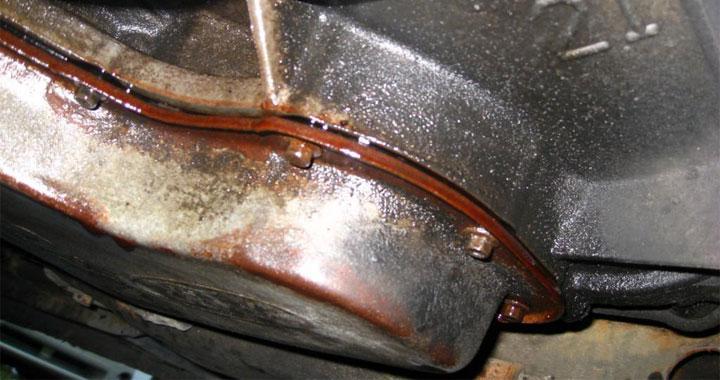
How to Identify a Transmission Fluid Leak
The most obvious sign of a transmission fluid leak is a puddle of red liquid under your car. However, other signs to look out for include difficulty shifting gears, burning smell coming from under the hood, strange noises while driving, low transmission fluid levels, and transmission slipping or not engaging properly.
Any Other Signs of a Transmission Fluid Leak?
Apart from the above-mentioned signs, you may notice other symptoms such as unusual engine temperature, check engine light on, reduced acceleration, and vibrations or jerking during acceleration.
What Causes a Transmission Fluid Leak?
There are several possible causes of a transmission fluid leak, including damaged cooling lines, deteriorated gaskets, hardened seals, and compromised torque converters.
Damaged Cooling Lines:
These lines circulate transmission fluid through a cooler to regulate its temperature. If they’re damaged, they can cause fluid to leak.
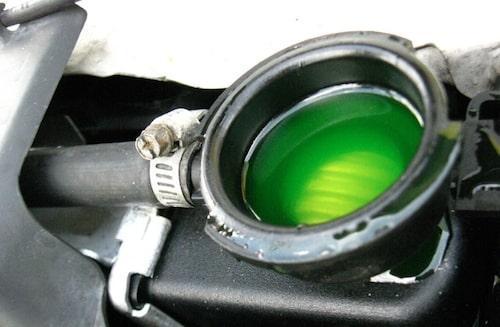
Deteriorated Gaskets:
The gaskets act as a seal between different components of the transmission system. Over time, they can deteriorate and cause leaks.
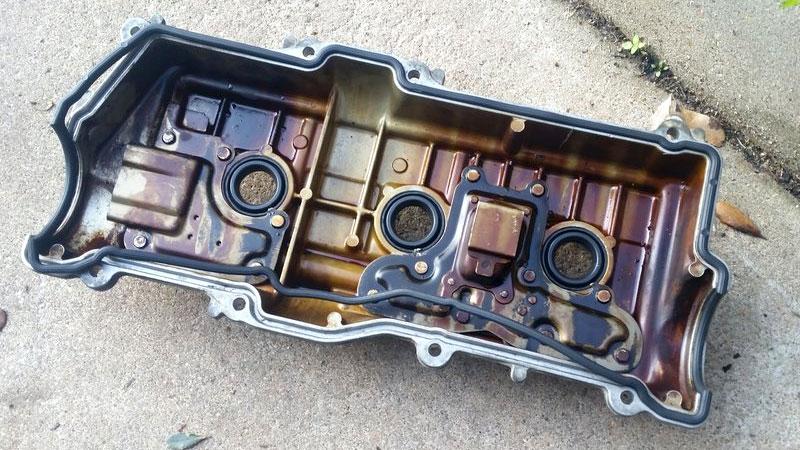
Hardened Seals:
Seals can harden and crack with age, causing fluid to leak from the transmission.
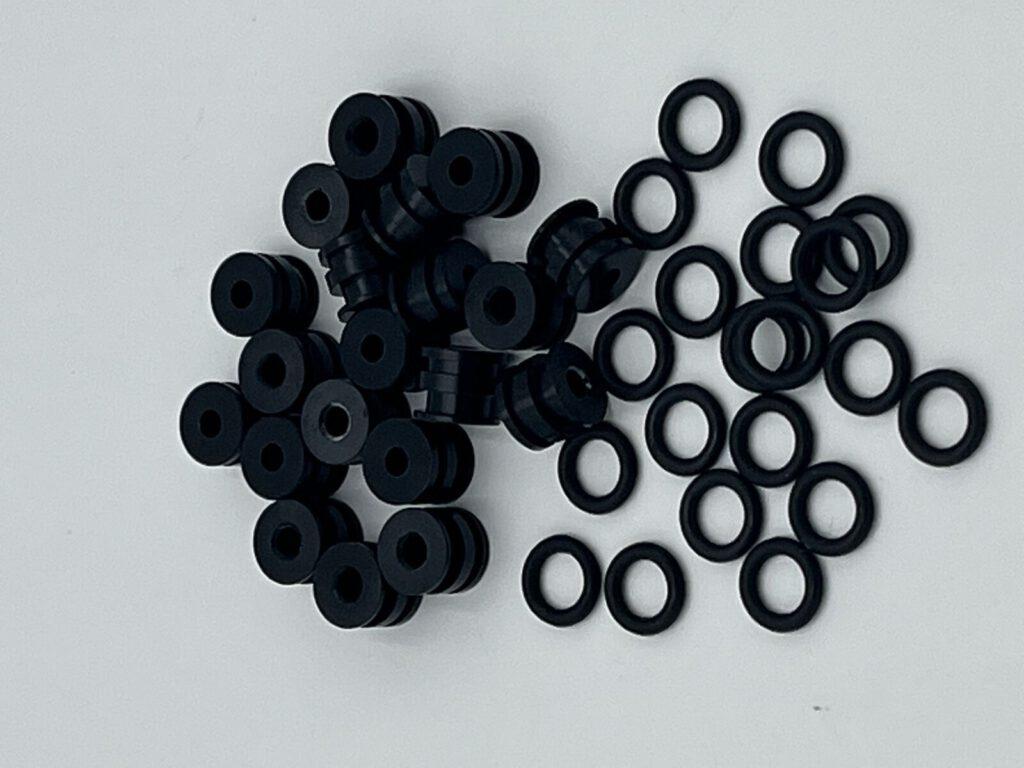
Compromised Torque Converters:
Torque converters allow the transmission to shift gears. If they’re damaged or worn out, they can cause fluid to leak.
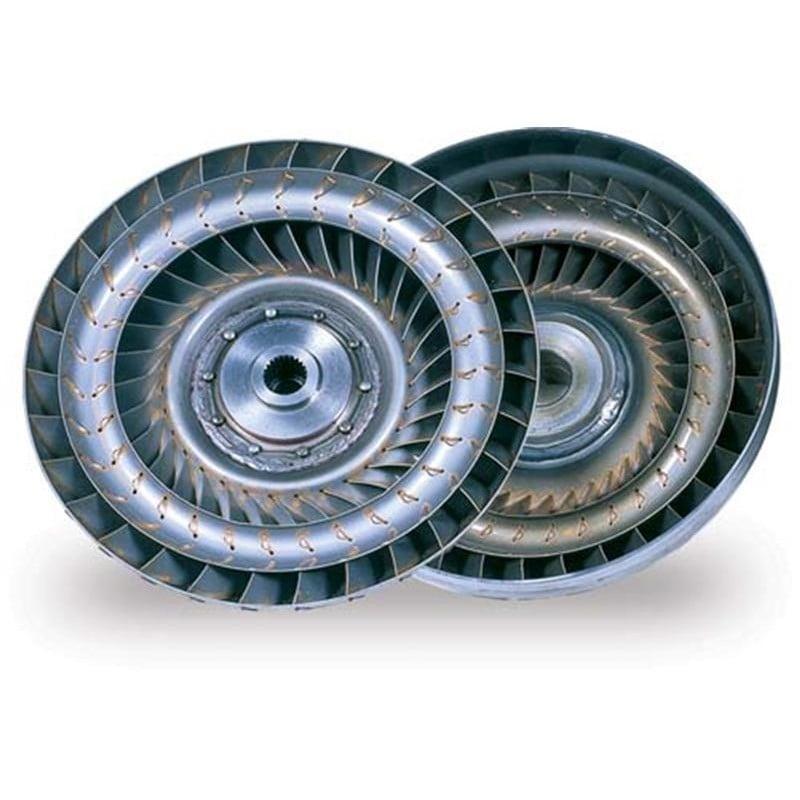
Can You Continue Driving with a Transmission Fluid Leak?
If you suspect a transmission fluid leak, you should not continue driving your vehicle. Running your vehicle with low transmission fluid levels can cause severe damage to the transmission, which can be costly to repair or replace. It’s best to get your car inspected and repaired by a qualified mechanic as soon as possible.
Cost to Fix a Transmission Fluid Leak
The cost to fix a transmission fluid leak depends on the severity and cause of the leak. In general, repairing a transmission fluid leak can cost anywhere from $150 to $1000 or more, depending on the extent of the damage.
Will a “Stop Leak” Product Fix a Transmission Fluid Leak?
While there are many “stop leak” products available in the market, they’re not a permanent solution for fixing transmission fluid leaks. These products are designed to seal minor leaks temporarily, and they’re not recommended for long-term use. It’s best to get your car inspected and repaired by a qualified mechanic to prevent further damage to your vehicle.
Transmission Fluid Leak FAQs
Can I drive my car with a transmission fluid leak?
How often should I check my transmission fluid levels?
Can a transmission fluid leak cause my car to overheat?
How can I prevent a transmission fluid leak?
Transmission Fluid Leak Tips
- Regularly check your transmission fluid levels: It’s essential to check your car’s transmission fluid levels at least once a month or as per the manufacturer’s recommendation. Low fluid levels can cause your transmission system to overheat and result in a leak.
- Avoid towing heavy loads: Towing heavy loads can put unnecessary strain on your transmission system, leading to leaks and other issues. If you must tow a heavy load, make sure your car’s transmission is rated for the load you’re carrying.
- Get your transmission fluid flushed and replaced: Over time, transmission fluid can break down and lose its lubricating properties, leading to leaks and other issues. Getting your transmission fluid flushed and replaced at the recommended intervals can help prevent leaks and ensure optimal performance.
- Address leaks promptly: If you notice any signs of a transmission fluid leak, such as a puddle of red liquid under your car, difficulty shifting gears, or strange noises while driving, it’s essential to get your car inspected and repaired by a qualified mechanic as soon as possible. Ignoring the issue can lead to severe damage to your transmission and potentially leave you with a hefty repair bill.
- Don’t rely on “stop leak” products: While there are many “stop leak” products available in the market, they’re not a permanent solution for fixing transmission fluid leaks. These products are designed to seal minor leaks temporarily, and they’re not recommended for long-term use. It’s best to get your car inspected and repaired by a qualified mechanic to prevent further damage to your vehicle.
By following these tips, you can help prevent and manage transmission fluid leaks and ensure your car’s transmission system is running smoothly.
Conclusion
In conclusion, a transmission fluid leak can cause serious damage to your vehicle’s transmission system if left unchecked. It’s essential to stay vigilant and address any signs of a leak promptly to prevent costly repairs down the line. By following the maintenance tips mentioned above, you can help keep your car running smoothly and avoid transmission fluid leaks altogether.
You can refer to other articles in our “Car maintenance guides” category for better vehicle maintenance.